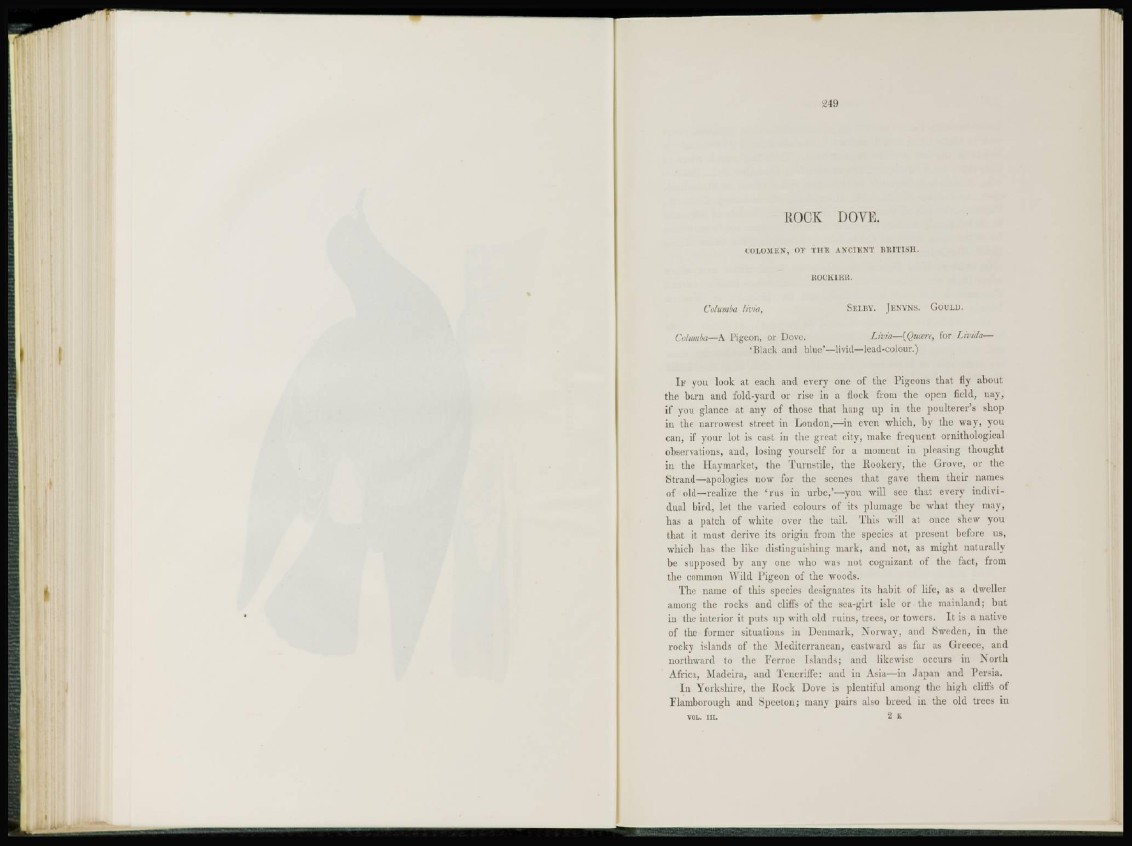
ROCK DOVE.
COLOMEN, OF THE ANCIENT BRITISH.
ROCKIER.
Columba Una, SKLBY. JENVNS. GOULD.
Columba—A Pigeon, or Dove. l.ivia—(Qua?rc, for Linda—
' Black and blue'—livid—lead-colour.)
I r you look at each and every one of the Pigeons that fly about
the barn and fold-yard or rise in a flock from the open field, nay,
if you glance at any of those that hang up in the poulterer's shop
in the narrowest street in London,—in even which, by the way, you
can, if your lot is cast in the great city, make frequent ornithological
observations, and, losing yourself for a moment in pleasing thought
in the 1 l a y market, the Turnstile, the Rookery, the G ro ve, or the
Strand—apologies now for the scenes that gave them their names
of old—realize the 1 r u s in urbe,*—you will see that every individual
bird, let the varied colours of its plumage be what they may,
has a patch of white over the tail. This will at once shew you
that, it must derive its origin from the species at present before us,
which has the like distinguishing mark, and not, as might naturally
be supposed by any one who was not cognizant of the fact, from
the common Wild Pigeon of the woods.
The name of this species designates its habit of life, as a dweller
among the rocks and cliffs of the sea-girt isle or the mainland; but
in the interior it puts up with old ruins, trees, or towers. It is a native
of the former situations in Denmark, Norway, and Sweden, in the
rocky islands of the Mediterranean, eastward as far as Greece, and
northward to the Ferroe 1 slands; and likewise occurs in North
Africa, Madeira, and Teneriffe: and in Asia—in Japan and Persia.
In Yorkshire, the Rock Dove is plentiful among the high cliffs of
Flamborough and Speeton; many pairs also breed in the old trees in
VOL. III. '2 K